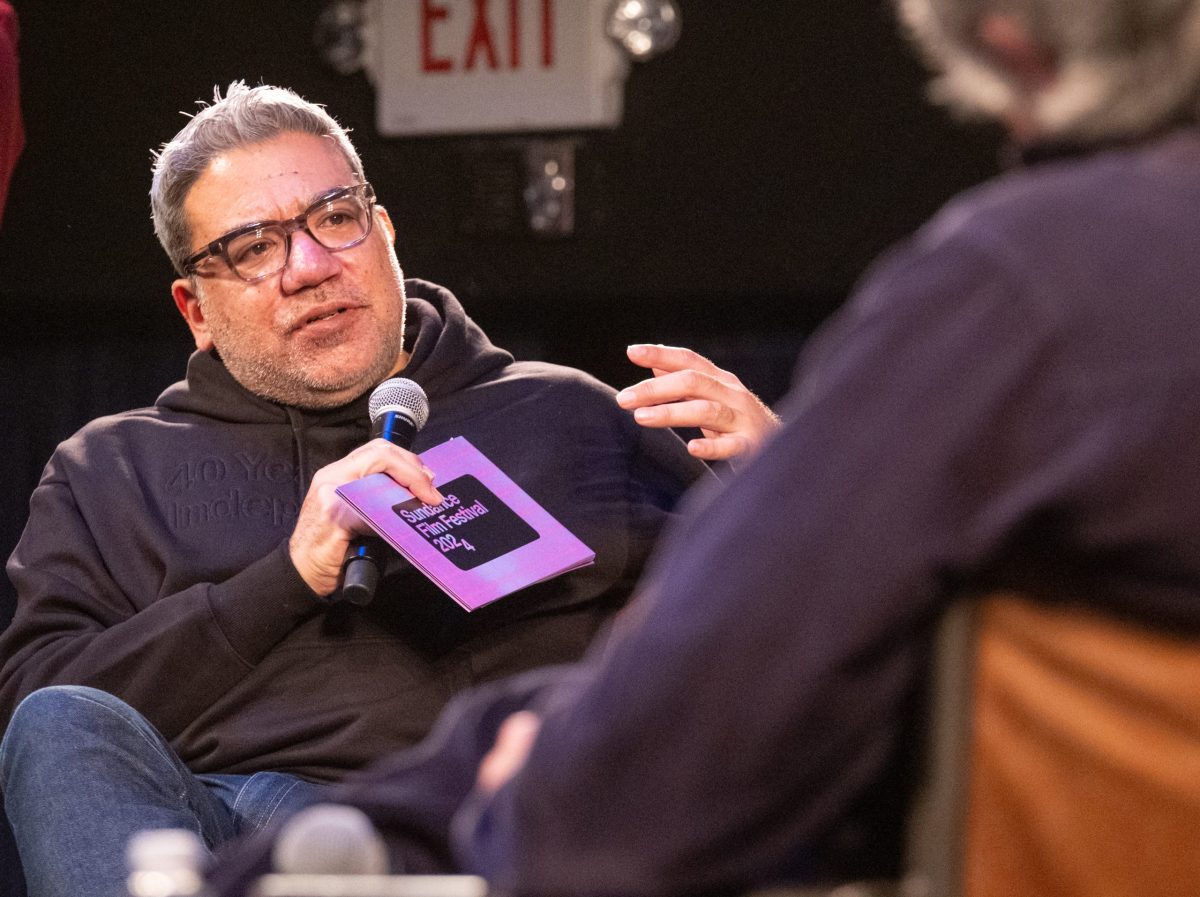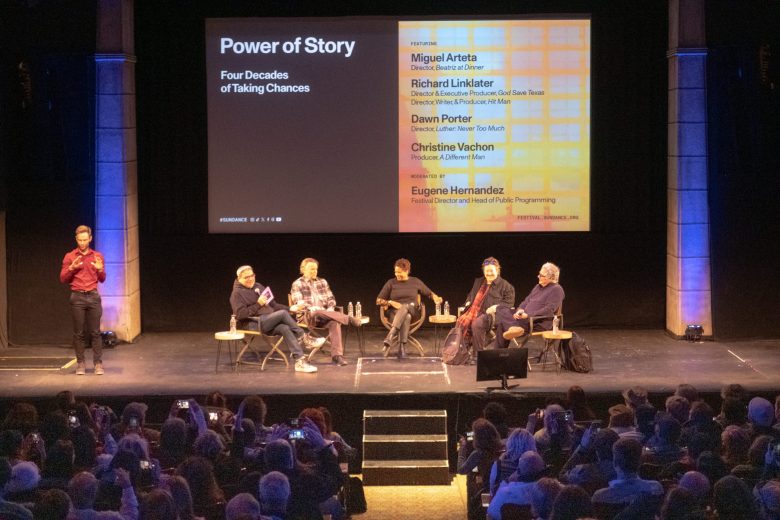
“The Power of Story: Four Decades of Taking Chances” panel discussion held Tuesday at the Egyptian Theatre was a celebration of the Sundance Film Festival’s four decades of independent film.
The sold-out audience also celebrated Independent Spirit and Gotham awards winning producer Christine Vachon, who landed her first Academy Award nomination that morning when Celine Song’s “Past Lives” was announced as part of the Best Picture category.
“I think, probably everybody up here doesn’t do it for awards, but that doesn’t mean it doesn’t feel good when it happens,” she said when the applause stopped. “It feels great. It’s wonderful for Celine. It’s such an extraordinary movie. And now it will reach a wider audience.”
With that, the discussion, moderated by Festival Director Eugene Hernandez, who is also head of public programming, peeled back the layers of the panelists which included Vachon, filmmaker and Austin Film Society Artistic Director Richard Linklater, filmmaker Miguel Arteta — known for his Sundance Film Festival works “Star Maps” (1997), “Chuck & Buck” (2000) and “The Good Girl” (2002) — and lawyer-turned filmmaker Dawn Porter, whose films include the Sundance films “Gideon’s Army” (2013) and “Trapped” (2016), and her 2023 South by Southwest Film Festival, “The Lady Bird Diaries,” which won the festival’s Lone Star Prize.
At one point, Hernandez asked each panelist their definition of independent film.
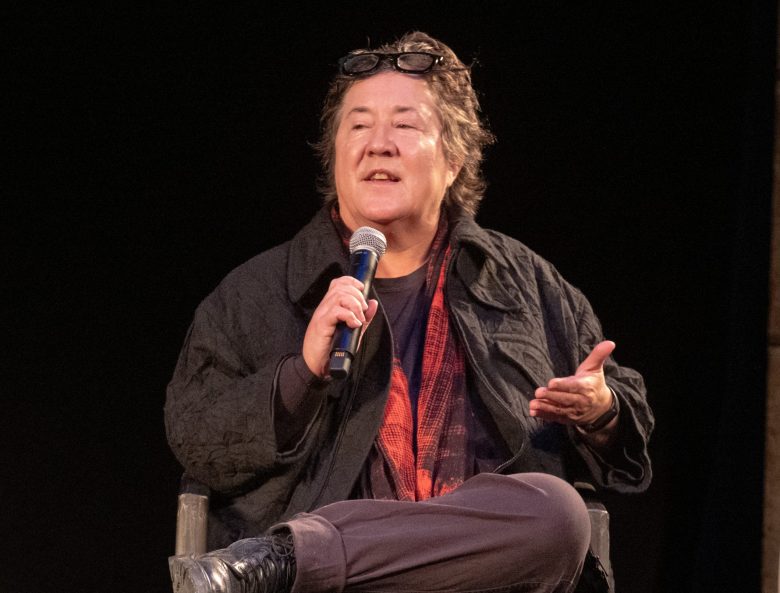
For Vachon, there was no easy answer.
“That’s something we think about all the time,” she said. “I think at this point, I tend to define independent film maybe as a result of a singular vision. It’s hard to really say, (because) almost every film I make is financed in so many ways.”
Vachon, who founded her production company, Killer FIlms, in 1995, remembers an interview that she and Lawrence Gordon, a major Hollywood producer — known for Zack Snynder’s 2009 superhero film, “Watchmen,” and Dan Trachtenberg’s 2022 “Alien” prequel, “Prey” — participated in “many years ago.”
“I think he wasn’t quite sure what to make of me and, probably, vice versa,” she said. “He turned to me at the beginning and said, ‘I just thought an independent film was a movie you took to market.’ I thought that was as good a definition as any.”
Linklater had a more direct, but equally ambiguous answer.
“Wasn’t there a Supreme Court definition of pornography (that said) ‘I know it when I see it?'” he said as the audience laughed. “It’s the same with indies. I don’t know any other definition.”
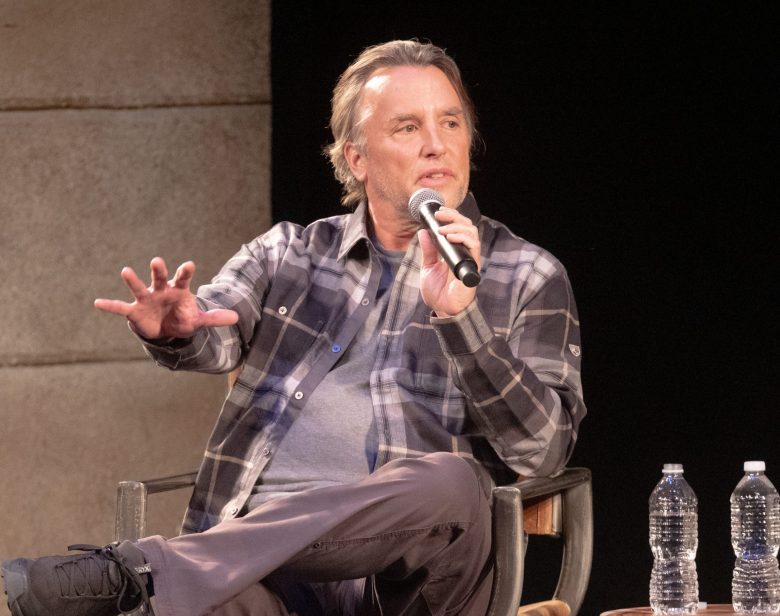
Linklater, who’s films “Slacker,” “Dazed and Confused” and “Boyhood” all premiered at past Sundance Film Festivals, remembered what the independent-film perception was like in the 1990s.
“It was very confusing, (because) the rigid studio, or the journalistic thing was, ‘Well, you have studios, and you have independents,'” he said.
In 1995, Linklater’s film, “Before Sunrise,” starring Ethan Hawk and Julie Delpy, was released a few weeks before Anthony Minghella’s “The English Patient,” which featured Ralph Fiennes and Juliet Binoche.
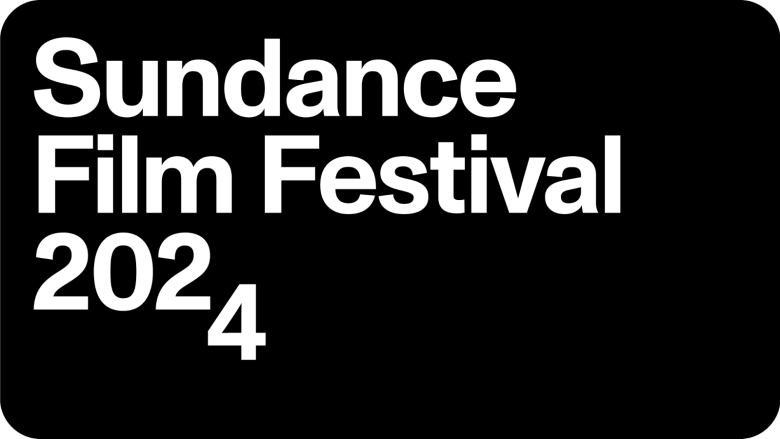
“Not that they’re in the same category, but my film cost $2.7 million and that film (was) $25 million,” he said. “(But), it was a big studio sellout, because Columbia (Pictures) distributed it, and that was an indie film, because it played 1,200 screens. At that point it was like, ‘Who decides who gets to put (on) the stamp of approval?'”
Porter, on the other hand, thinks of independent films as those that don’t have mass-market appeal.
“Nobody makes a movie by themselves,” she said. “So, it’s not like there’s every one person who’s independent in that way. There are all the obstacles and all the concerns, and we keep doing it because I think we have something to say — whether it’s what you want to say artistically, some kind of social commentary or some combination of those things. And I think that is more of an independent spirit.”
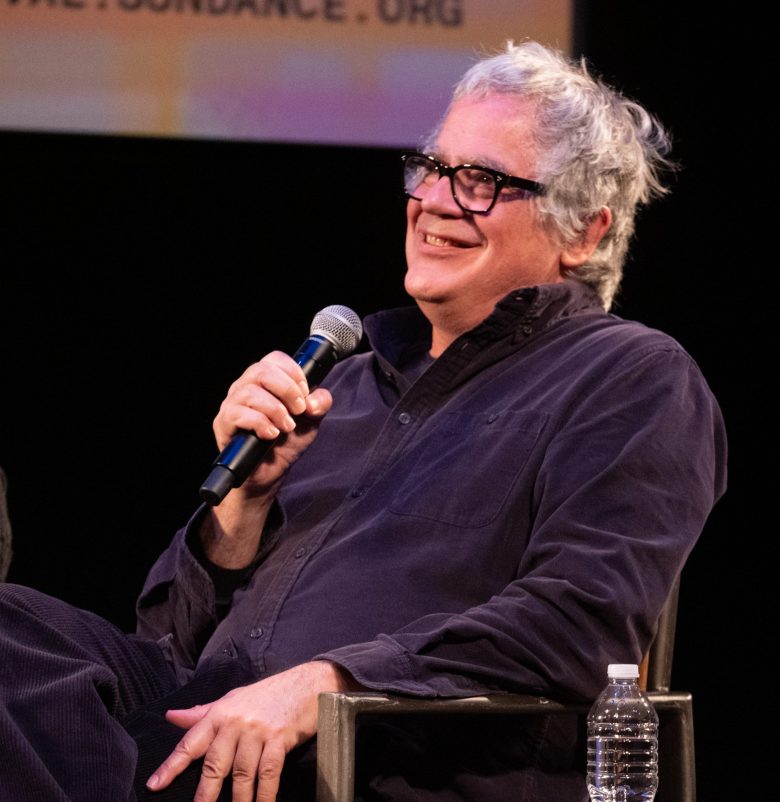
For Arteta, independent films originally meant movies from other countries.
“I started this because I noticed in the ’60s people started rushing to see the foreign movies at art houses,” he said. “(They were) more honest sexually, and (told) more honest human stories all in foreign languages. I saw the lines, and I was like, ‘Where are the American filmmakers (who) make these kinds of more honest movies? We ought to change that.’ To me, it’s that. More open and personal is what it’s about, if you can make a movie where someone doesn’t force you to cast somebody.”
Linklater agreed.
“If you have final cut and no one’s messing with you is probably a good definition,” he said.
Just as Vachon added, “Then you take it to market.”
During the discussion, each panelist also had the opportunity to show one minute of the independent films that influence and inspire them.
Linklater selected Jim Jarmusch’s 1984 “Stranger Than Paradise.”
“It sort of rocked the ’80s indie world, and it’s minimalism,” he said. “MTV was starting to dominate the culture. (And) all of this quick, flashy photography kind of didn’t mean anything. It was mindless, surface-level stuff.”
The stark and rough black-and-white, one reel takes of Jarmusch’s work appealed to the punky-underground person Linklater was, and still is.
“It was speaking to myself and my friends,” he said. “It was taking that minimal idea and making it cool. It felt like a film you could make. It was flying in the face of so much technically that was going on in the culture.”
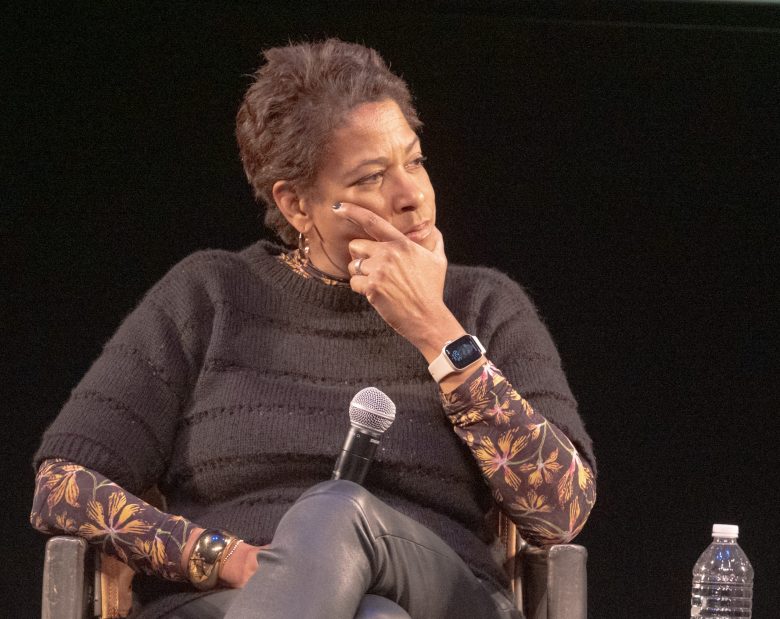
One of Vachon’s favorite films is Bill Sherwood’s 1986 Sundance Film, “Parting Glances.”
“‘Parting Glances’ is one of the first films I worked on, and it was only the feature film by Bill Sherwood who died a couple of years afterwards of AIDs,” she said. “It’s a story of a group of friends who are gay, and it’s not about anybody coming out. It’s really about their lives. But what was really the lesson was that Bill wanted to make a movie about people he never saw represented. And he wanted to do it on his own terms.”
John Cameron Mitchell’s 2001 “Hedwig and the Angry Inch,” which was based on Mitchell and Stephen Trask’s 1998 award-winning musical, made an impact on Arteta.
“I had seen the play and it made me realize that it was possible to get it absolutely right,” he said. “When I saw the film, having Hedwig singing right into your eyes and trying to tell you what the origin of love is right into your face was so insanely powerful.”
Arteta will always remember the message of the song, “Origin of Love.”
“The thing that unites us is the pain that feels so strange inside of each of us,” he said. “That seems to be the way to bridge the gap between people, and I think what John created with this moment and that song really goes to that point.”
Porter named Steve James’ 2011 documentary “The Interrupters,” as her go-to film and said it was because of the filmmaker’s honesty and intimacy in handling his subjects.
“In Steve’s movie there’s a real respect for his characters,” she said. “So often the depictions of people coming out of prison, young Black men, are so flat. The person is not even a person. And so, for Steve, he’s so patient. There’s nothing salacious. They get to be full human beings.”
Although much of the discussion reflected on the past, another purpose of the discussion was to look toward the future of independent film, and Linklater said he isn’t concerned that people will suddenly stop making them.
He cited the record number of Narrative Feature submissions to this year’s festival.
“When I was first here in 1991, I think there had been 212 submissions in the Narrative Competition, and I was like, ‘Oh, my God, that is so many movies,'” he said. “Now you have 4,400 (Narrative) submissions.”

